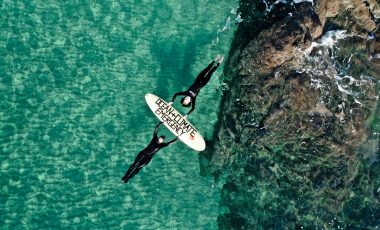With the state of our seas and waterways reaching critical pollution levels, society is forced to lean on the hard work of not-for-profits to keep our adventure playground as clean as possible. Organisations like Surfers Against Sewage are constantly pushing for change and making incredible gains to improve water quality in the UK, so that we can all keep playing!
Surfers Against Sewage (SAS) is a grassroots campaigning charity on a mission to protect the ocean. It was created in 1990 by a group of Cornish surfers, fighting to clean up the sea that was making them sick. Now, Surfers Against Sewage is more than surfers and more than sewage. The ocean conservation charity campaigns for a thriving ocean and thriving people. Its campaigns focus on all that threatens the ocean – plastic pollution, the climate emergency, industrial exploitation and water quality – taking action from the beach front to create waves of change across the front benches of governments.
Living just around the corner from the SAS HQ and sharing the same ocean playground, the issues surrounding water pollution are also shared, as they are by all who seek solace in the water. As supporters of this incredible charity, we caught up with them to question them on the current situation in our seas, and what we can all do to help. Here’s what they had to say:
Q.Having recently published a Water Quality Report for the UK, can you describe the reality of the current situation?
Year after year, our water quality reports have exposed the sickening numbers of sewage discharges that are occurring across the country. Last year alone, our Safer Seas & Rivers Service recorded over 5,500 sewage discharge notifications. That’s raw sewage being pumped out into our bathing waters. These are designated beaches that we swim and play between the red and yellow flags. Even more so, some of the best waves for surfing are being affected.
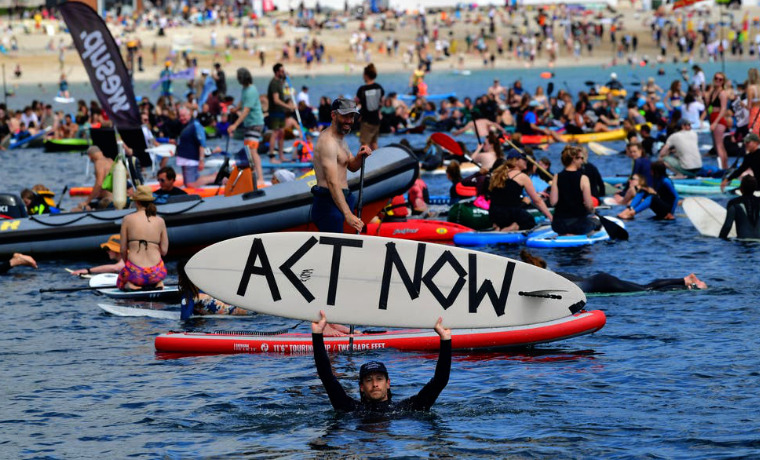
Thanks to the pressure of our network of Ocean Activists, water companies now have to publish their own data. In 2021, water companies were responsible for pumping sewage into UK waters an eye watering 370,000 times. That’s 2.7 million hours of sewage pollution.
Currently, only 14% of rivers currently meet ‘good ecological status’. This is compared to a target of 75% of rivers meeting that status by 2027. And our citizen science water quality testing last year revealed that 3 in 4 rivers tested would be classified as ‘poor’. This means they pose a continuous serious risk to human health.
2.7 million hours of sewage pollution
Yet of the 600+ designated bathing waters around the UK, only 2 are located on rivers. That means there is absolutely no water quality testing for human health done on our inland waterways. The good news is that 98% of designated bathing waters now meet minimum water quality standards, up from just 27% back in the 90’s. But scratch beneath the surface and only 70% meet ‘excellent’ standard. That means that 30% of our most popular beaches need some form of improvement. That’s why we are ranked bottom of the table of 30 countries in Europe for the state of our water quality.
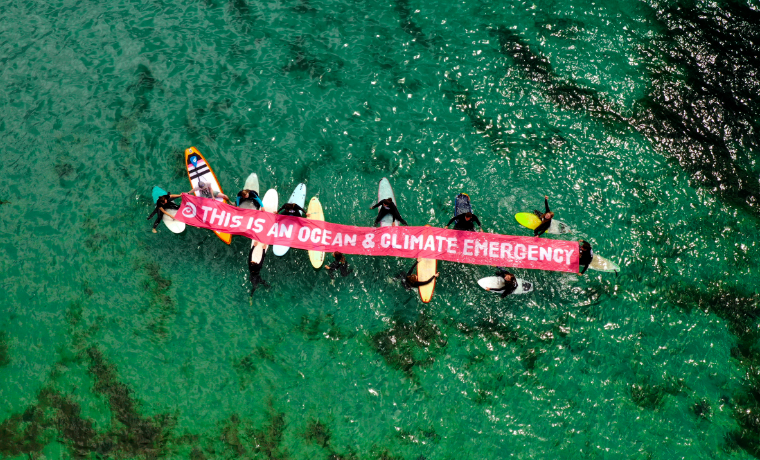
Q.How and why have things got to the point they’re at?
Sewage is released into waterways across the majority of the UK because we have a combined sewerage network. This means surface water (i.e. rainwater) and sewage water go through the same network and into a sewage treatment works. When we have really high rainfall, this puts pressure on the sewerage network. So, to stop sewage backing up into people’s homes, water companies are allowed to discharge it into the environment. The law says that this should only happen in ‘exceptional circumstances’.
But we are increasingly seeing sewage discharges happening in dry weather or at the slightest sign of rain. Essentially we’ve had decades of under investment in our sewerage infrastructure from the water industry which means the Victorian pipes beneath our feet are crumbling. Meanwhile water companies have been making sky high profits, paid out £57 billion in shareholder dividends, and rewarded their CEO’s with millions of pounds of bonuses while amassing debts of almost £50 billion.
And the government and regulators have simply made things worse. The ‘cutting of red tape’ by successive governments is now allowing water companies to self-monitor. That means that they report to the government if they are operating illegally or not. And, surprise surprise, this has led to significant amounts of miss reporting. In 2021, Southern Water were fined £90m for deliberately dumping sewage into waterways and not reporting it. Now the EA and Ofwat have launched an investigation into over 2,000 waste water treatment works across six different companies for similar environmental crimes.
On top of this, our water quality testing regime is simply not fit for purpose. Water quality testing is only carried out once a week during the official summer bathing season with no winter monitoring undertaken at all. 15% of samples can be discounted in ‘unusual circumstances’ which include sewage discharges. All this means that the classification system is not giving us a true picture of water quality. With classification based on the previous year’s testing, they actually don’t tell us what the water quality is like in real time, when we actually want to swim in it.
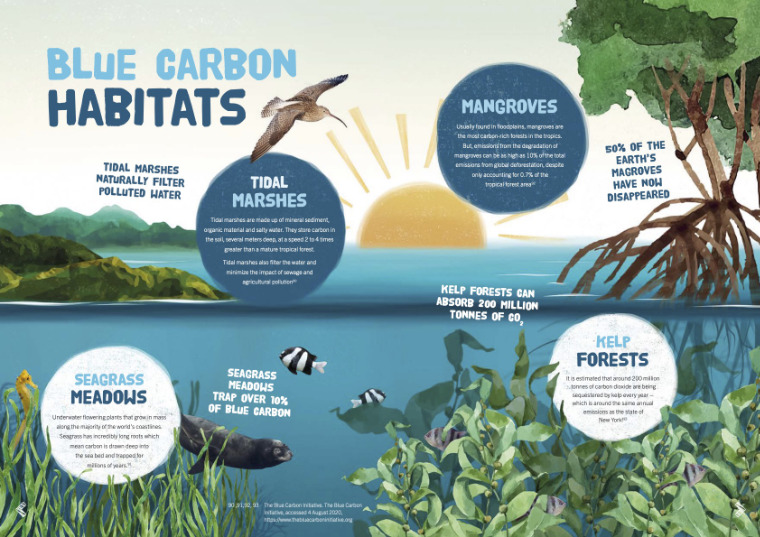
Q.Aside from the direct impact on humans, what are the environmental implications of excess sewage in our seas and waterways?
Sewage pollution is one of the primary causes of deoxygenation of water which creates inhabitable ocean and freshwater environments. It creates ‘dead zones’ that are caused by a rise in bacteria growth of ‘algae blooms’. This growth eventually reduces the volume of oxygen in the water meaning that other species struggle to survive. As rainfall intensity increases due to climate change and more sewage enters the ocean as a result, deoxidation is likely to become more prominent, causing the decline of water habitats.
Q.But it’s not all doom and gloom! SAS are making incredible gains in their campaigning with so much positive action. What are the key milestones that SAS have achieved in recent years?
We’ve been campaigning to end sewage pollution now for over 30 years. Back in the 90’s we had major successes in European legislation that led to massive changes in how sewage is dealt with and treated. Now that we’ve left the EU, we need to make sure that environmental legislation does not slip backwards and actually creates a step change in action to end the sewage pollution scandal.
Over the last few years we launched the #EndSewagePollution Campaign. Over 44,000 people signed the #EndSewagePollution petition in 2020 which we handed in directly to the Secretary of State for the Environment. Through the SAS real time water quality mobile app, tens of thousands of people are emailing their MP’s every time there is a sewage discharge into their local or favourite bathing water. This has created a tidal wave of political action on the issue.
Through the Environment Act last year we saw huge steps forward with requirements on the water industry to publish data all year round, undertake more testing, and improve data transparency. We also forced the government to take a massive u-turn to include legislation requiring water companies to reduce the harm from sewage outflows. This is testament to the power of people pressure.
The genie is most definitely out of the bottle now and we won’t stop calling out the polluters until we see huge and far reaching reductions in sewage pollution.
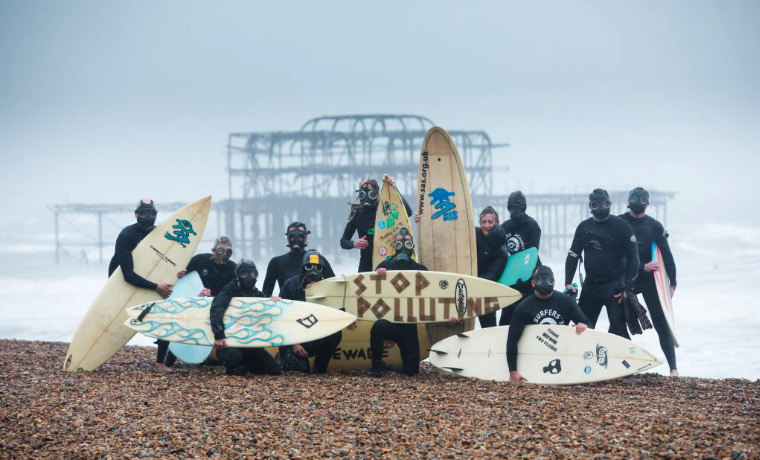
Q.What’s next for SAS?
Well, the sewage scandal continues. Our rivers are on the brink of collapse and we can’t talk about the health of the ocean without talking about the health of the rivers that feed it. We are calling for 200 river bathing waters by 2030. Bathing water status places a legal obligation on polluters and the government to improve water quality. With hundreds of thousands of water lovers flocking to our beautiful winding rivers every year, it’s essential that they have access to clean water to swim and play in. We are now supporting community groups who are wanting to get bathing water status in their local area.
We are also working behind the scenes to hold the government to account. We want to see an ambitious action plan that makes rapid progress to tackle sewage pollution.
And of course, we’ll always be calling out the water industry on their polluting ways and the shareholders that fund it.
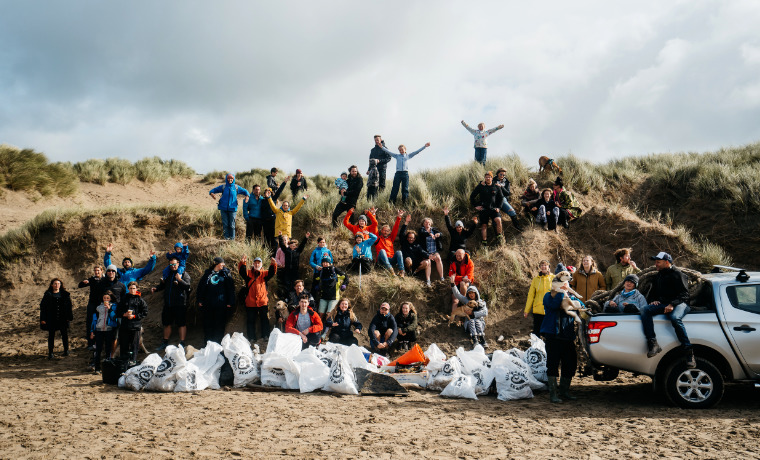
Q.What easy changes, that will have a meaningful impact, can our readers make today?
- Sign our petition to speak up for rivers and demand 200 river bathing waters by 2030 – Speak Up For Our Rivers
- Write to your MP to call on them to demand the government take action to tackle sewage pollution -#EndSewagePollution: Get your MP to Pipe Up
- Download the Safer Seas & River Service to check out where there is sewage pollution. You can also take action directly from the app – Safer Seas & Rivers Service
- If you’ve been sick after swimming in sewage, we want to know so we can hold polluters to account. Submit a sickness report to us – Health Report Form
- Think about what you’re putting down the sink and loo. Think ‘3 P’s’ – pee, poo, paper. Anything else can cause blockages putting even more pressure on an already creaking system.


